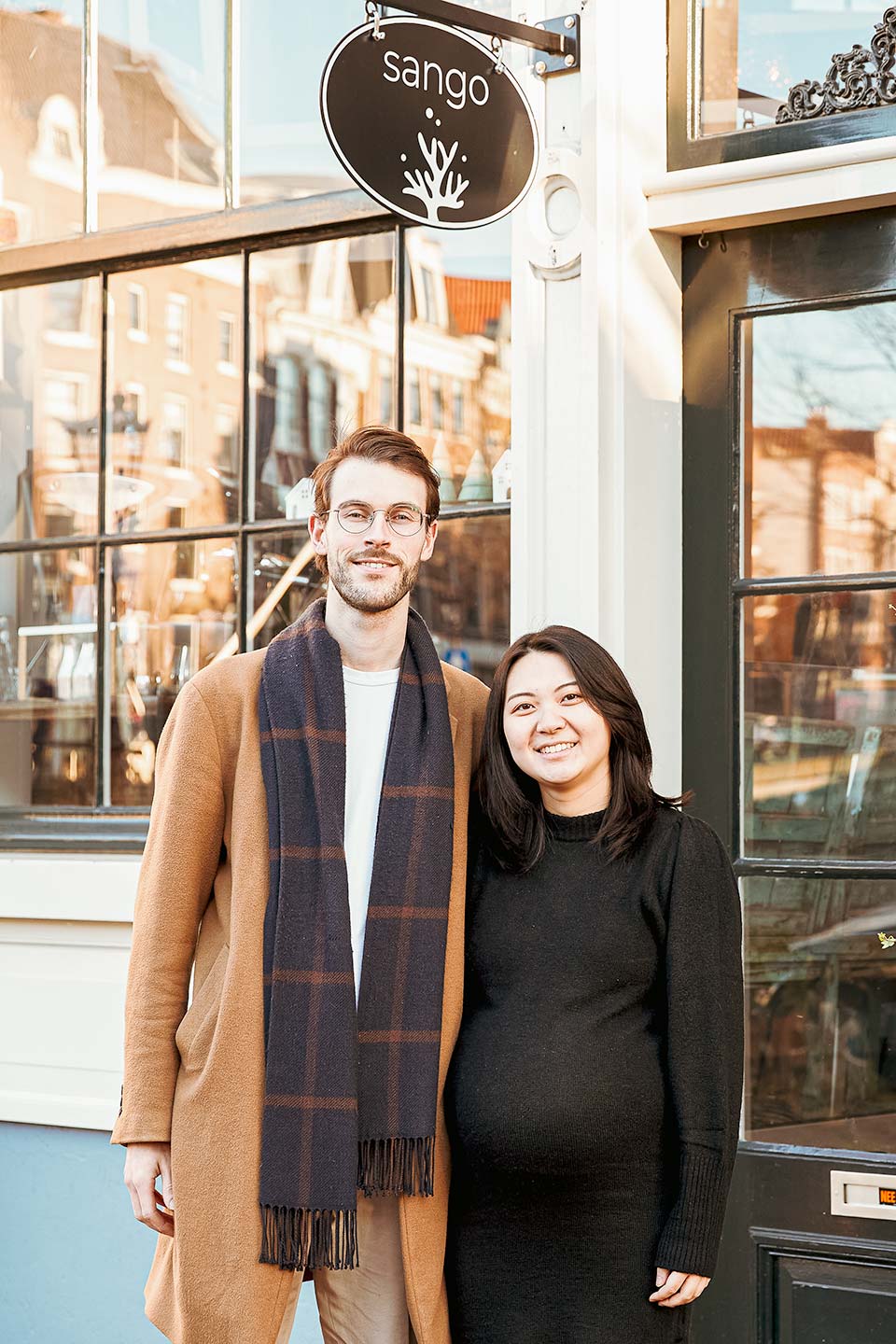
Big Changes Start Small – Sharing Deeper Truths with Coffee
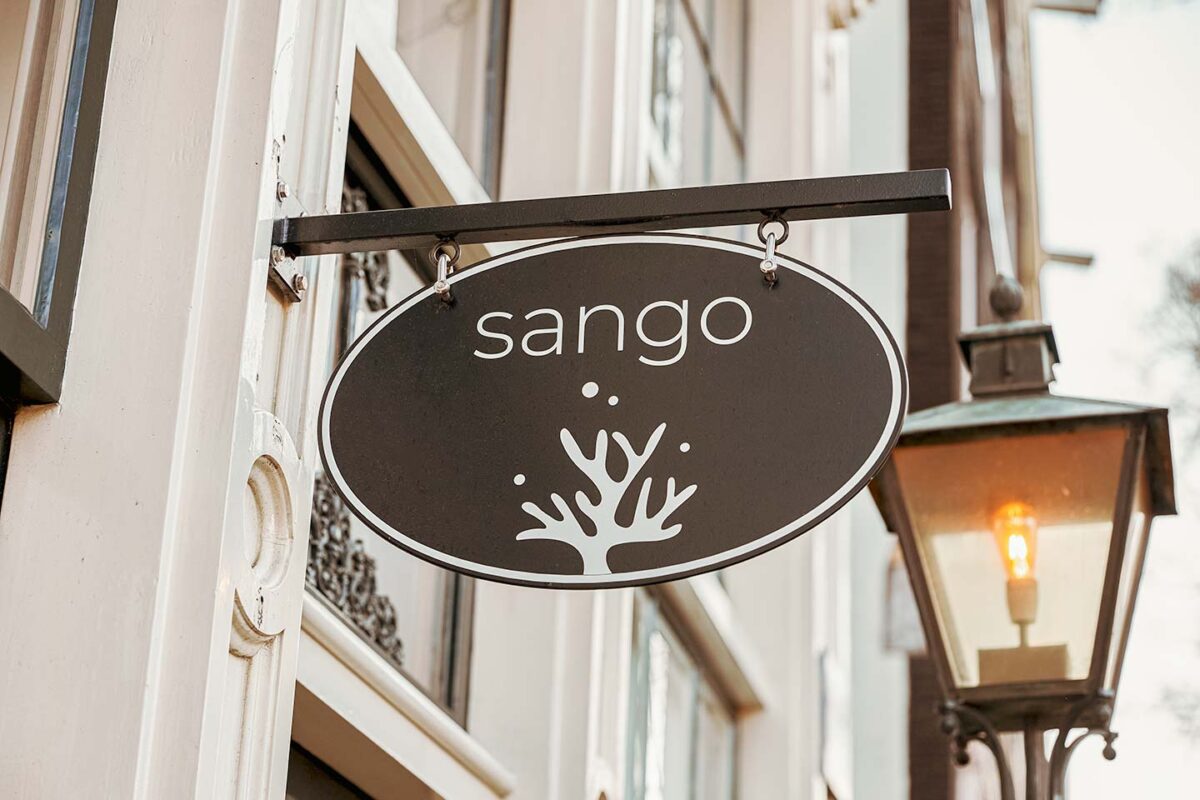
The Amsterdam-based specialty coffee shop Sango was co-founded in 2021 by life partners Mitchell and Kaho, and is inspired by the sustainable ethos of a traditional Japanese lifestyle.
When faced with the reality of the climate crisis, and what that could mean for the future of coffee, Mitchell and Kaho decided to try and raise the awareness of the people around them – through their daily interactions and regular workshops. We spoke to Kaho and Mitchell to find out why they place so much importance on personal interaction, and how small changes can have a big impact.
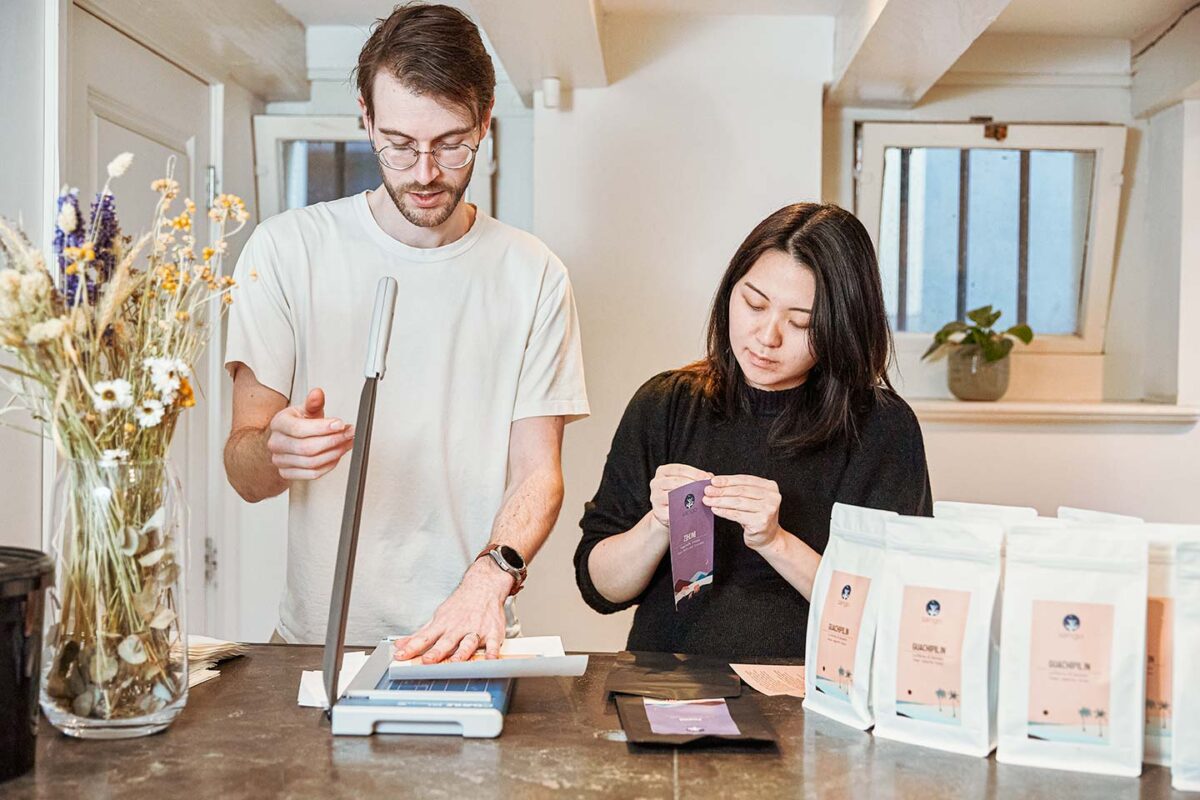
Passing on a sustainable ethos
What is ordinary for some, can be extraordinary for others. In 2004, Nobel Peace Prize winner Wangari Maathai spoke of the “spirit of mottainai” at a United Nations gathering, with the aim of popularizing it as a slogan for environmentalism. Mottainai is a concept deeply ingrained in Japanese culture. Simply, it means not wasting anything. On a deeper level, however, it is about gratitude. Feeling thankful for what you have, what you are given, and showing that gratitude by using an item through its full lifecycle.
For the founders of Sango, the spirit of mottainai was a source of fresh inspiration. When Mitchell and Kaho were first dating, they visited Kaho’s grandparents in Japan. While there, Mitchell received a gift beautifully wrapped with furoshiki and elegant paper.
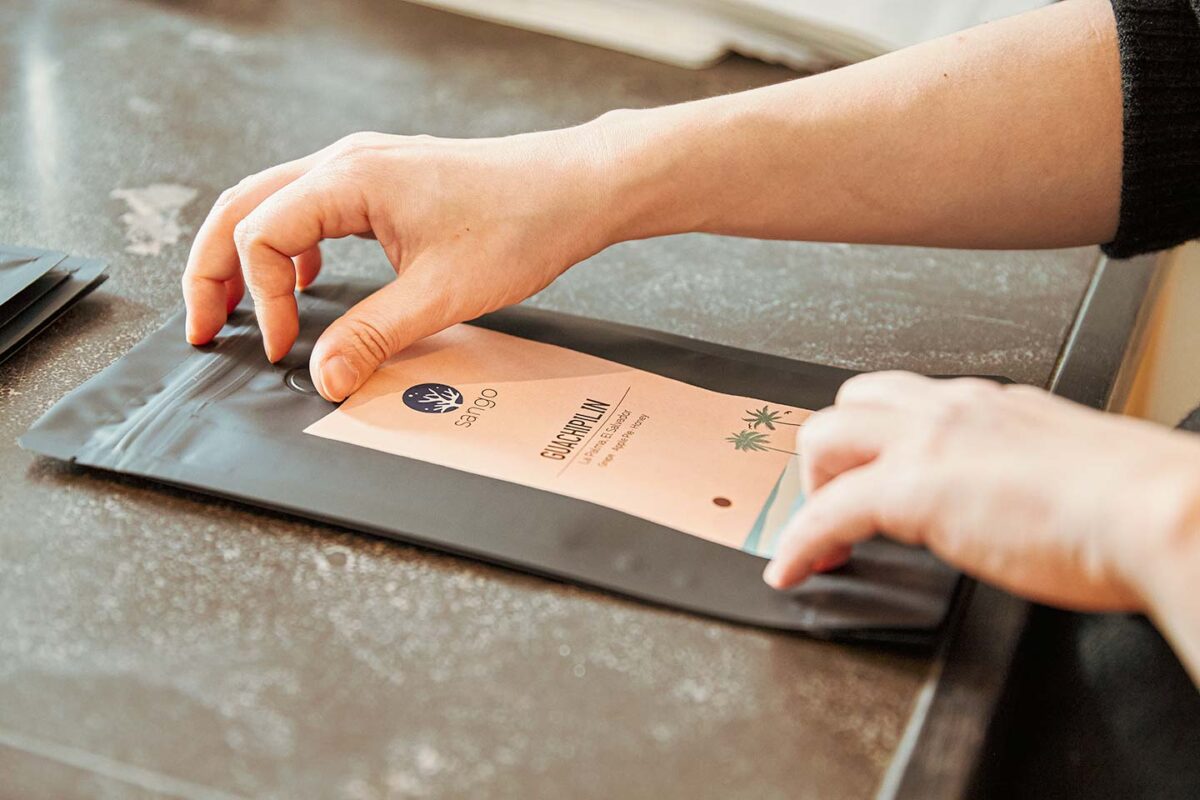
Kaho: “In the Netherlands, gifts are just wrapped in bags from the shop where they were bought, or loosely wrapped in paper. And when you get a present, you rip open the wrapping straight away. The wrapping paper is not part of the present, it’s just covering up what’s inside.
But with my grandparent’s present, it felt like such a shame to open it because it was so beautiful. You know, ‘mottainai’! And even though I was born in Japan, I’ve only lived there for five or six years, so seeing that was like a reverse culture shock for me.”
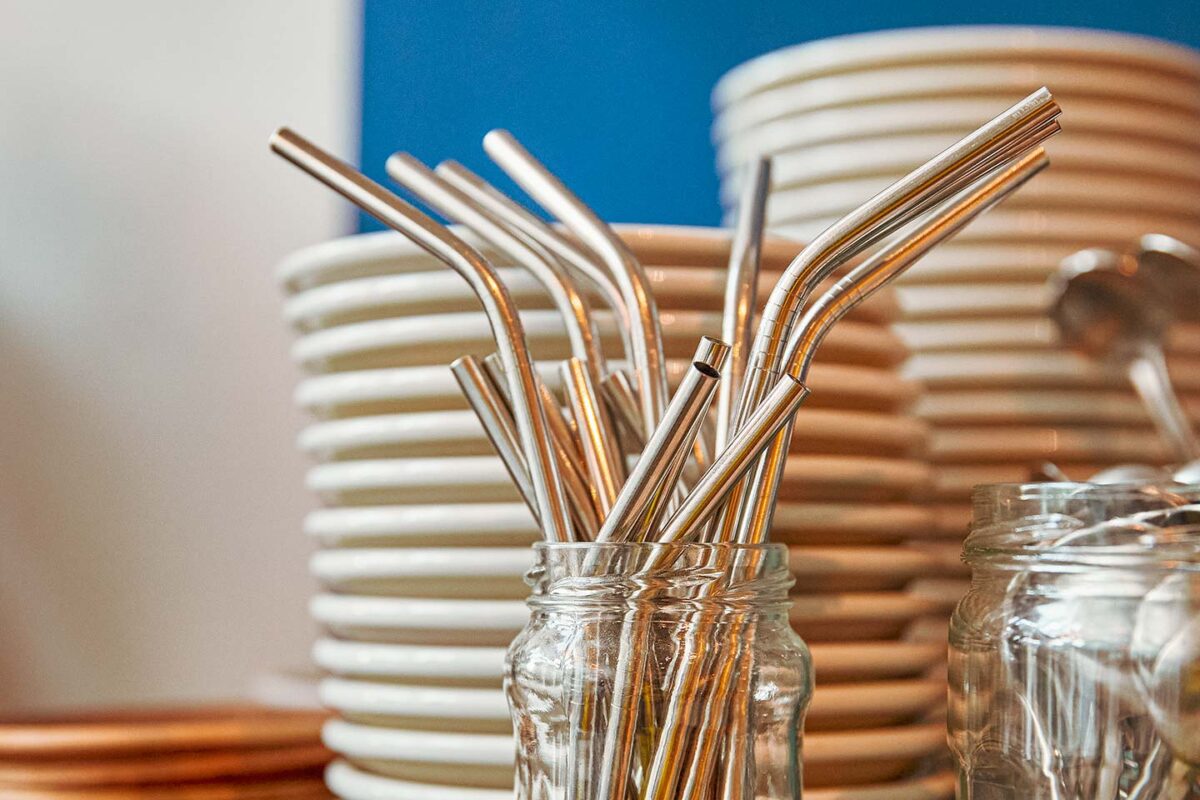
That spirit of mottainai is behind everything at Sango. Reusable cups made from coffee husks and coffee waste, biodegradable plastic, metal straws, a bowl of sugar cubes instead of paper sugar packets – each change is tiny on its own, but combined can have a significant impact on the environment.
Mitchell: “These changes can start conversations with customers. And sometimes we hear from customers that they’re implementing our ways in their homes. And not just through us, but also through them, the words are gonna spread to their friends and their family. I think that’s the big thing.”
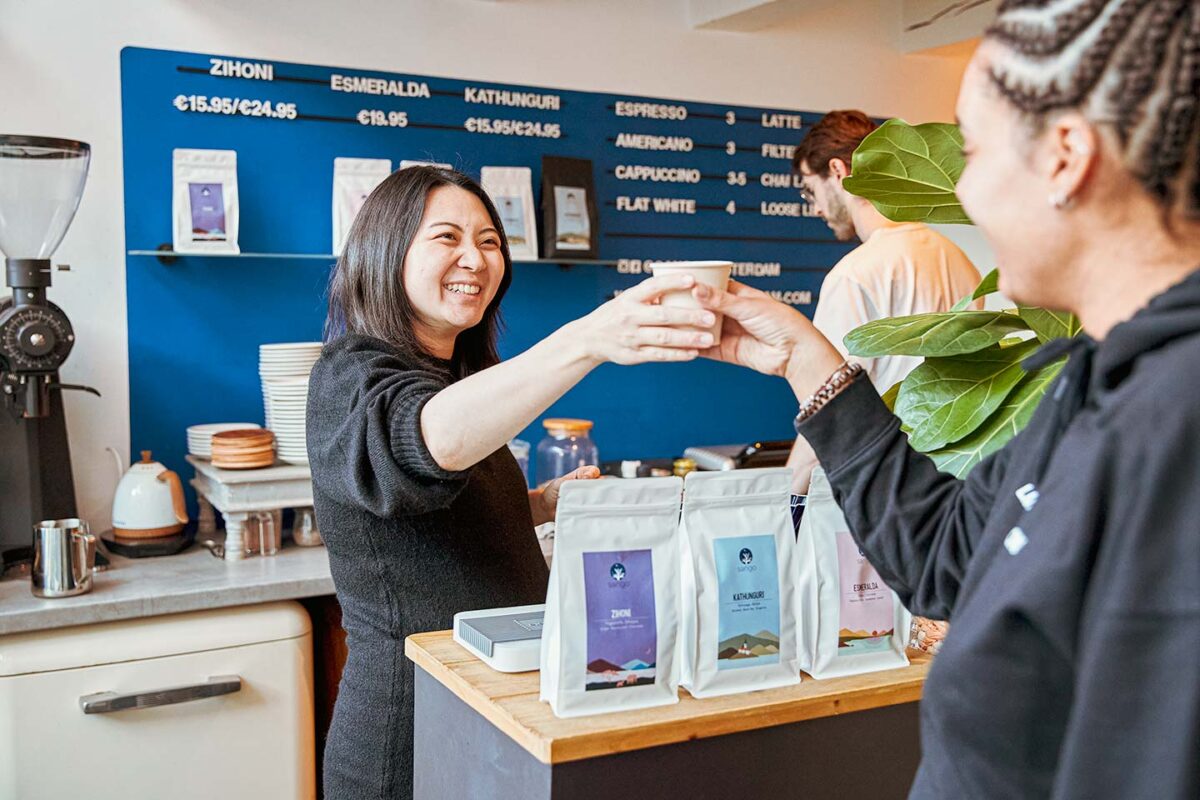
Kaho: “I personally really like it when I see elderly Dutch customers come to us. They usually come in and say, ‘Why is your coffee so expensive?’.
Then we explain why the prices are set in such a way, how that’s to do with fair pay, and also how each farm that we work with focuses on sustainability. And they’re like, ‘Okay, benefit of the doubt, I’ll give it a try.’ And then they’ve been coming back ever since to buy our coffee beans.
They’ve stepped away from the supermarket commodity coffee, which is all they’ve known for their lives. As you get older, it’s hard to change your old ways from something you’ve been used to for so long, so I feel like we’ve done something good when they come back, and it’s great to see that.”

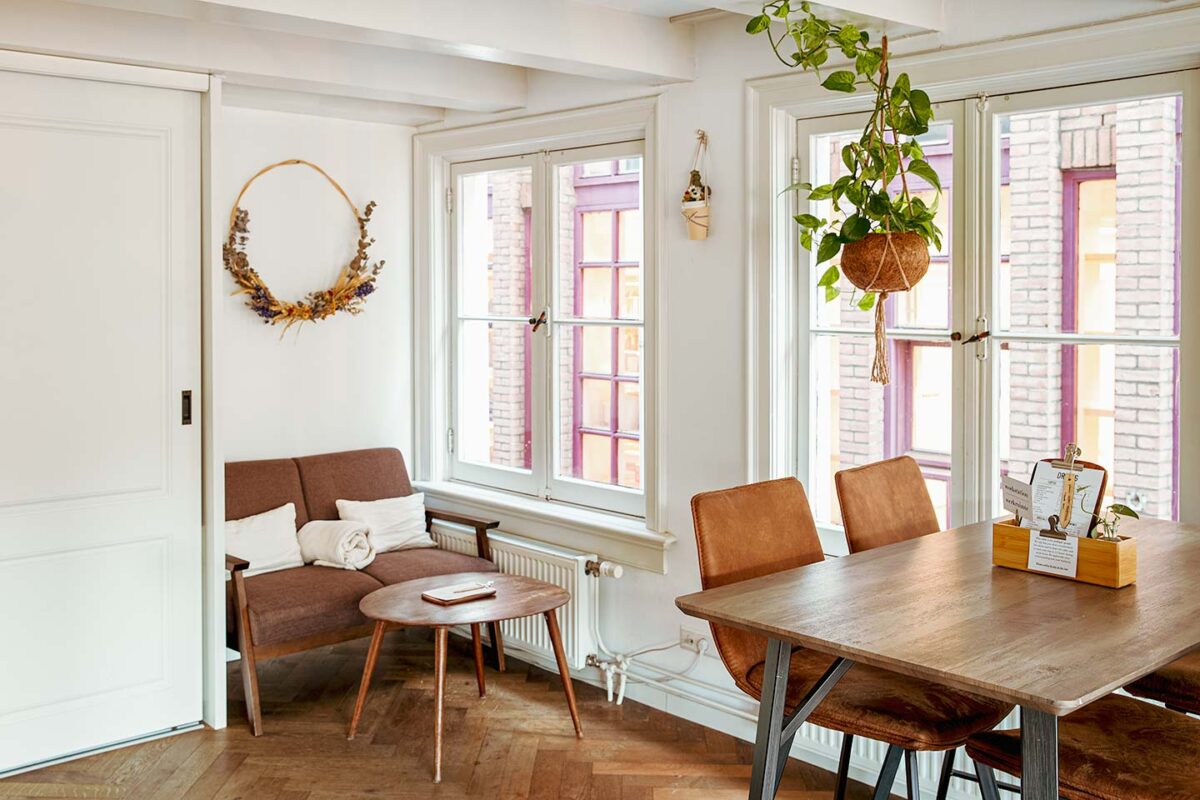
Facing reality to change the future
Mitchell and Kaho follow a minimalist lifestyle. They chose cloth diapers over disposable, and wherever possible, buy second hand items over new. When they celebrate their birthdays, they ask friends to bring something consumable, like food or drink, instead of a material gift.
Kaho: “But I don’t think we’re conscious of making an effort to be sustainable. It’s been our daily routine for so long that it’s just part of who we are. When people visit us they’re like, ‘Where’s all your stuff?’ And we’re like ‘This is all our stuff.’ We just don’t feel the need to have materialistic things.”
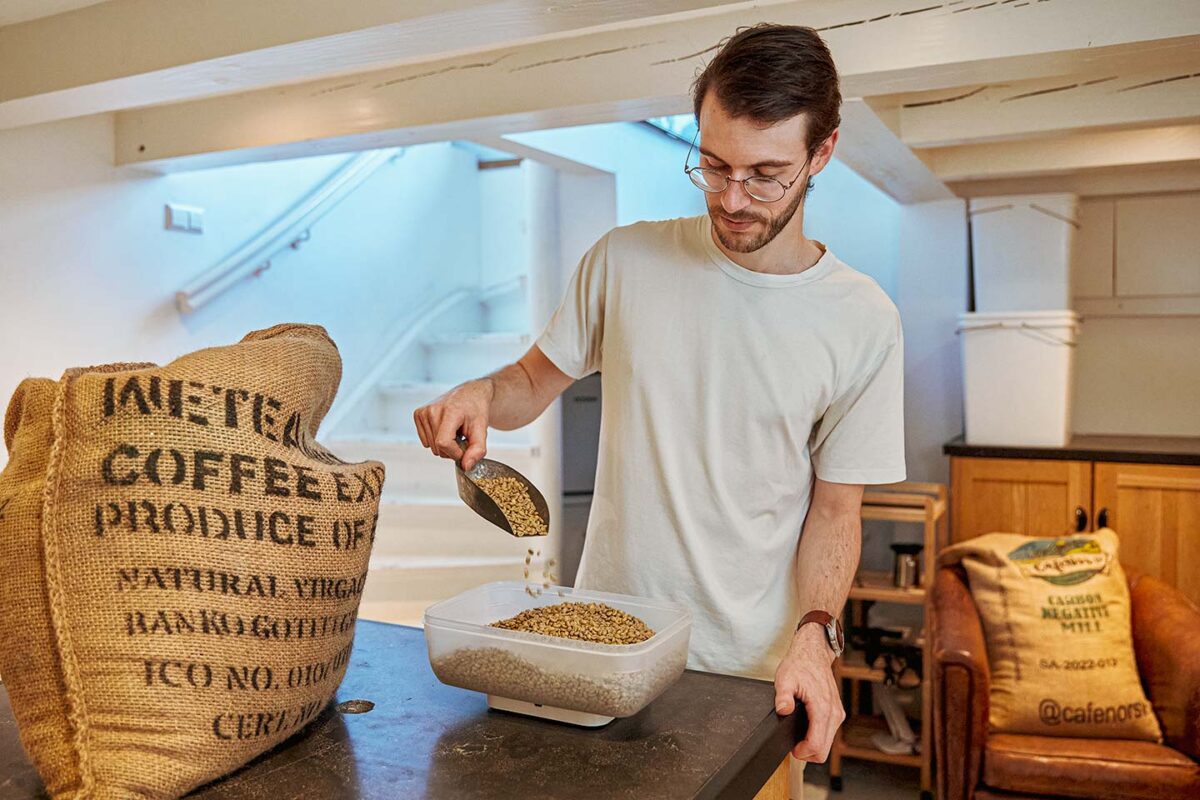
Mitchell first began to think about sustainable living when he took some courses on coffee in his early 20s. When he understood that the climate crisis could mean that by 2050, areas suitable for Arabica coffee could be half what they are now, he felt a real sense of urgency and fear at the reality of the situation.
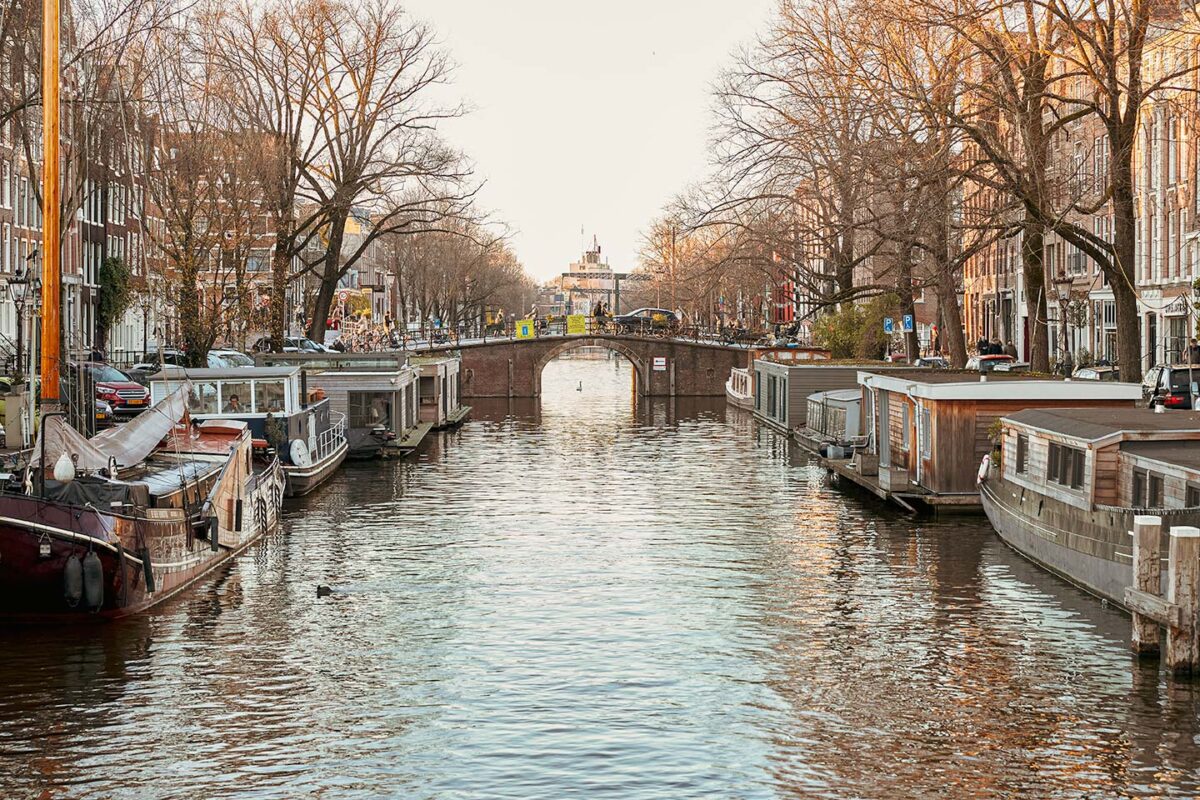
Born and raised in Amsterdam, climate change is something Mitchell has witnessed firsthand. When he was a kid, it would snow for a month straight and PE class would be spent on the iced-over canals. But the snowfalls gradually got few and far between, and the last time the canals of Amsterdam froze over was 2012.
Mitchell: “Seeing all the natural disasters around the world happening, floods, wildfires, all these things, it just really hits hard. And then when our son was born in 2020, thinking about his future made us think more about the reality. That was a big trigger.”
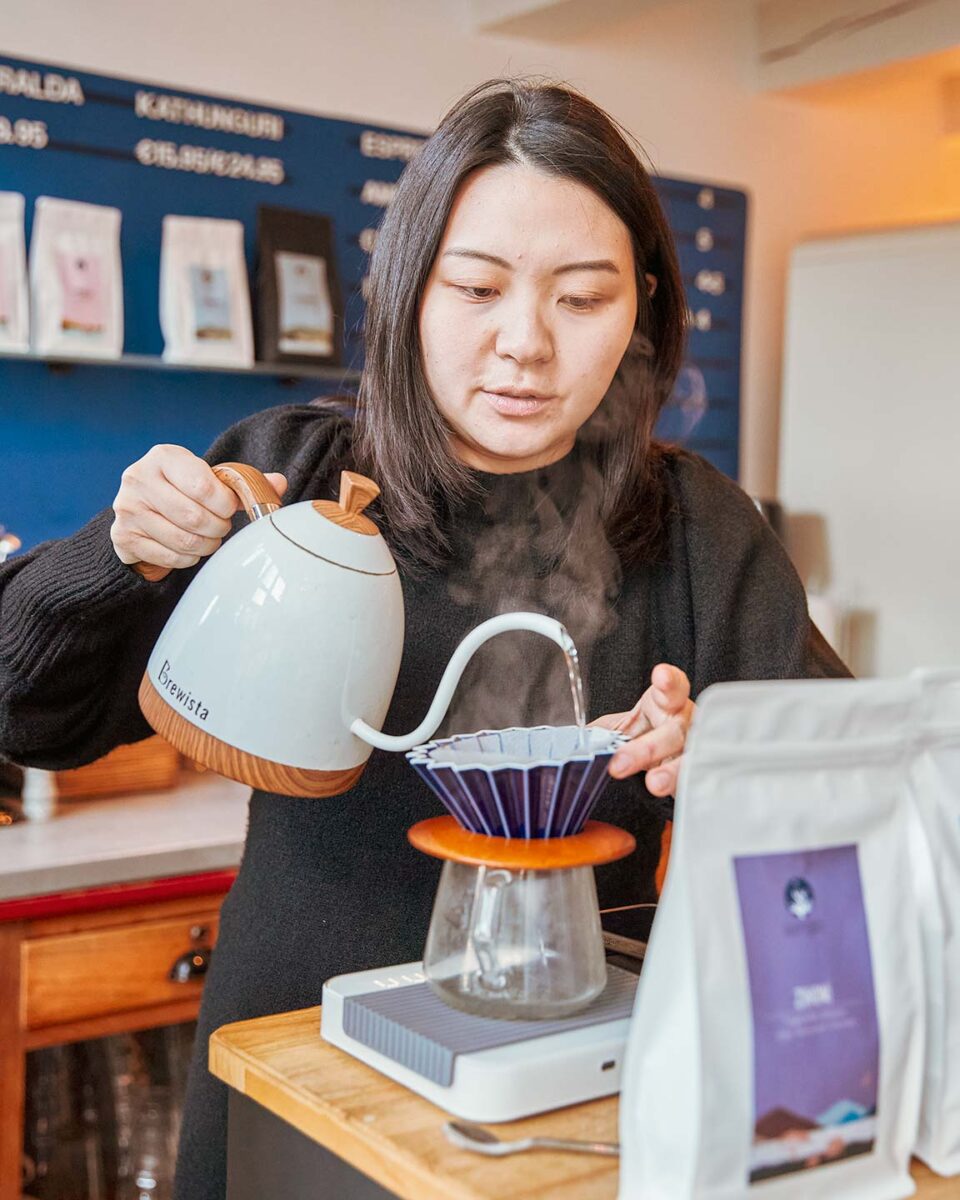
Kaho was writing her Master’s thesis on the perception of labels for sustainable and fairtrade products, when she decided to focus on the coffee industry. She later met Mitchell and her interest in coffee grew, but it was her two and a half years in the very environmentally unsustainable industry of show business that prompted a shift in her awareness.
Kaho: “Going back to our son, thinking about when he’s 20 years old and how he might not be drinking coffee every day. It’s a scary thought. I mean, there’s only so much we can do as a two person company. But that’s why I think we want to start small and just focus on inspiring the customers that we see everyday.”

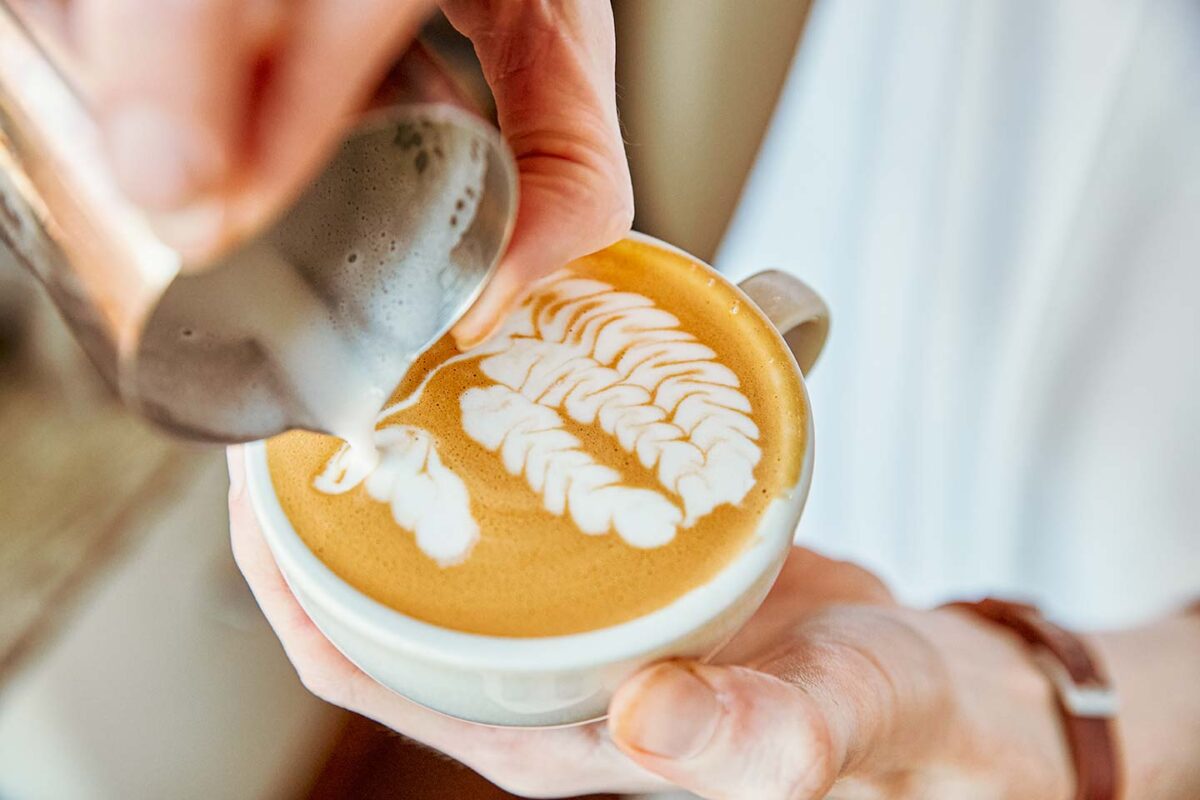
Complete trust forms the perfect partnership
Mitchell’s entry into the world of coffee was through latte art. The challenge of producing something beautiful in a delicate canvas of only 10 cm appealed to his creativity. Mitchell’s goal might be to become World Champion, but being the best is not his reason for competing.
“Being part of a competition really motivates you to work harder. Getting feedback from judges really makes you think about things differently, and makes you better.
Getting direct feedback from customers, and from my colleagues is nice, but in my head I’m thinking it could be better. I’m never satisfied and I always think there’s room for improvement. Latte art is about being inspired. It’s just something that inspires me to be more creative.”
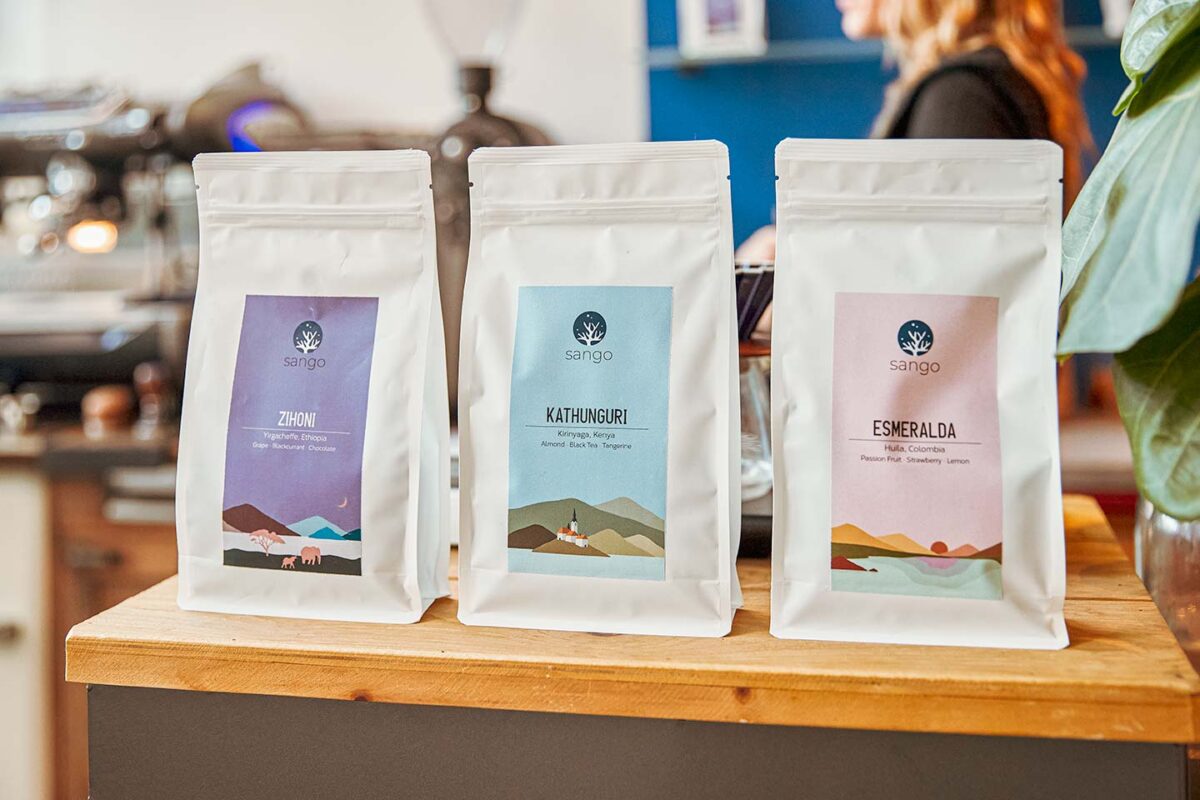
Creativity is a huge part of who Mitchell is – the coffee labels and logos are all his original designs. Like a musician with the sudden inspiration for a song, Mitchell could be hit by an idea at any time, and when he is, be it a package design or a product name, he just has to get it down and out there.
Mitchell is also someone who likes to act on impulse. He once woke up one morning and decided to skateboard the 20 km to work. It took him two hours to get there and when he arrived he could barely stand. But he did it.
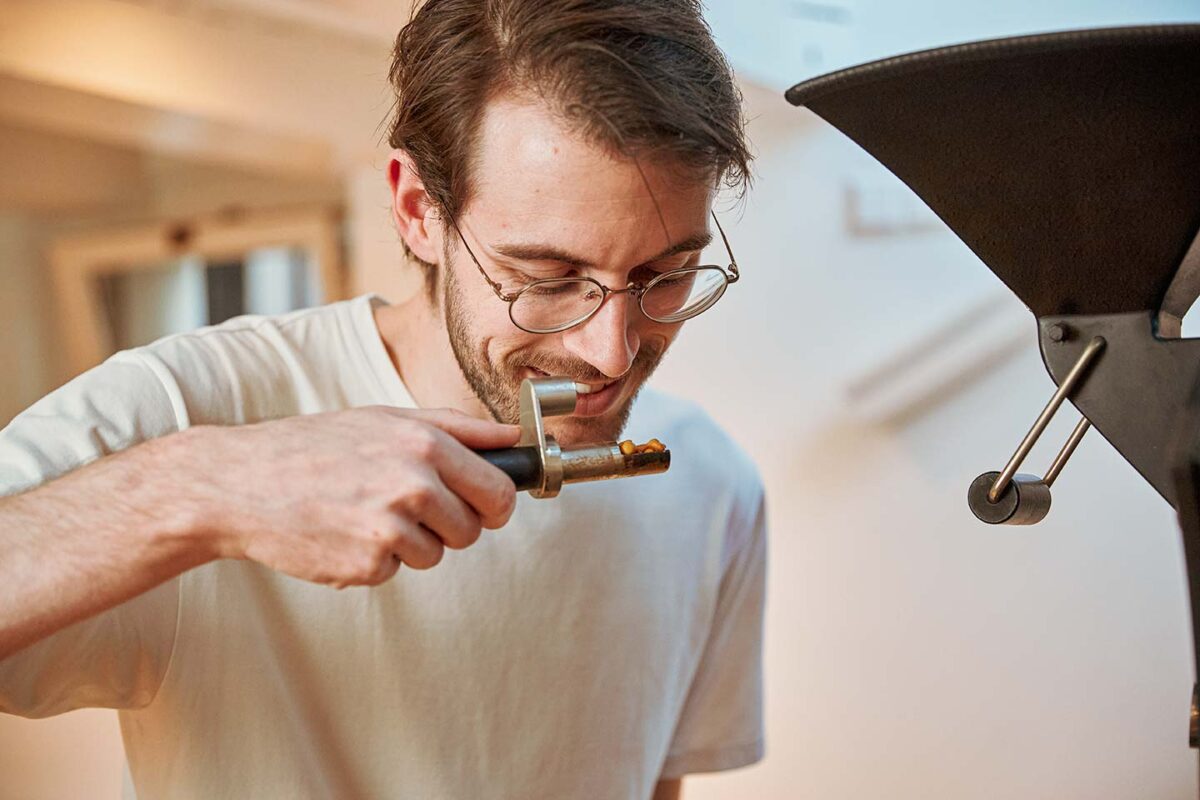
In 2016, hearing on the news that five planets were going to be in alignment, he got up at 4 am, and walked over 10 km till he had a good viewpoint. He was at work from 8 am the same day, but that was not going to stop him missing the chance. And then he realized it would be even more amazing to see it at night, so he went out again in the evening.
Mitchell’s motivation to do anything is not about results or goals, it’s about doing what feels right, good, and fun in the moment. One thing on his bucket list is to walk the 300 km from the north to the south of the Netherlands.
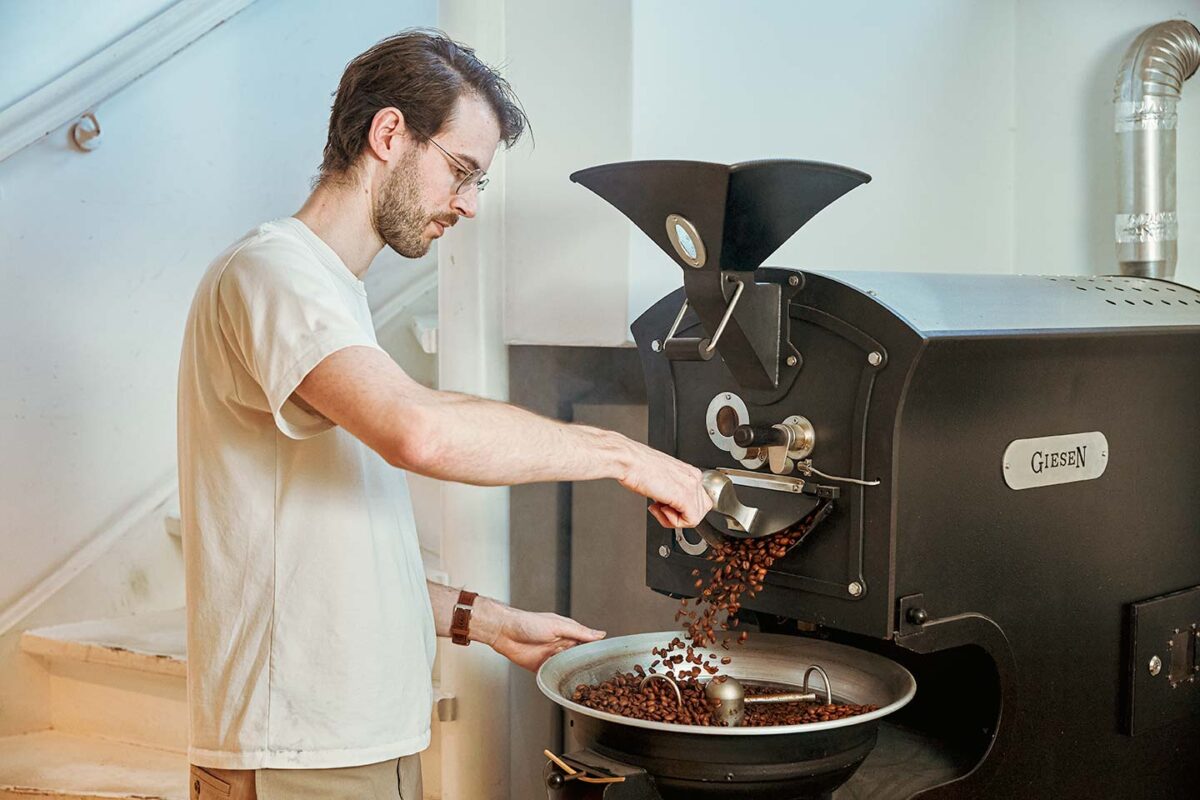
Kaho: “Coffee is in some ways like space because it’s endless, in its varieties, origins, processing, and flavors. I think it’s this endless aspect, the infinite possibilities of coffee that drew Mitchell to it.”
Mitchell: “Yeah. But then I’m also someone who likes to complete things. You cannot taste every coffee in the world. You cannot see all the stars in the sky. These things cannot be completed. So maybe latte art helps balance that out, because it is something that can be completed.”
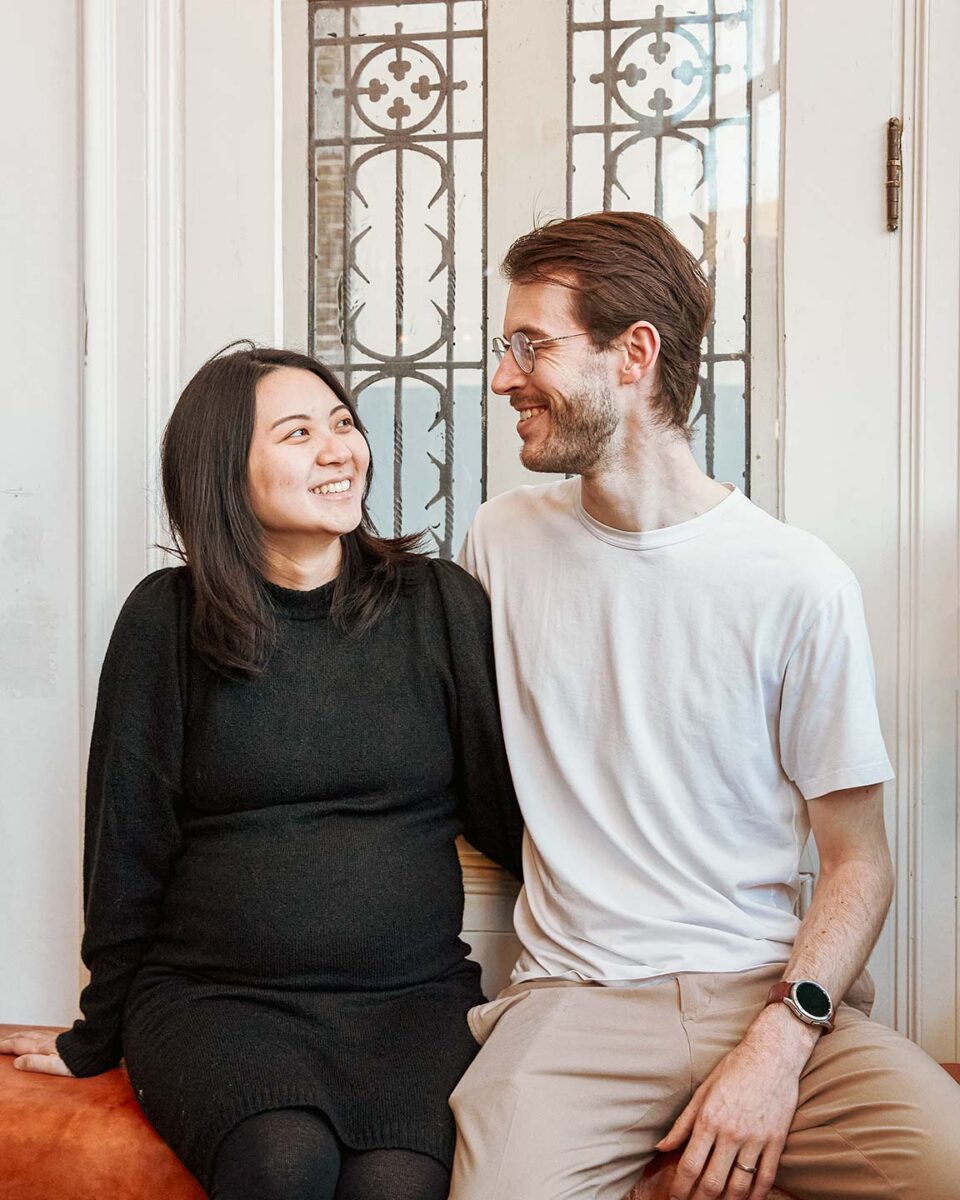
Kaho and Mitchell have been together for eight years. Mitchell is the creative, and Kaho the logical thinker of the business. But there is no strategy meeting or allotting of tasks – they naturally drift to the jobs that suit them. Everything falls into place without argument or debate.
Kaho: “We’re very different people. And I feel like there’s always something going on in his mind that I will never understand. But that’s great. We compliment each other.”
Before they opened Sango, they were advised by friends and family not to go into business together. Mitchell’s mother, who was in business with her partner, said, ‘Are you sure you want to start a business together? Because it’s not going to be easy.’ But nothing scared them off their plan.
Kaho: “We can’t keep our work completely out of our family life, but it doesn’t ruin or affect our relationship. We trust each other completely and everything just works together without saying anything.”

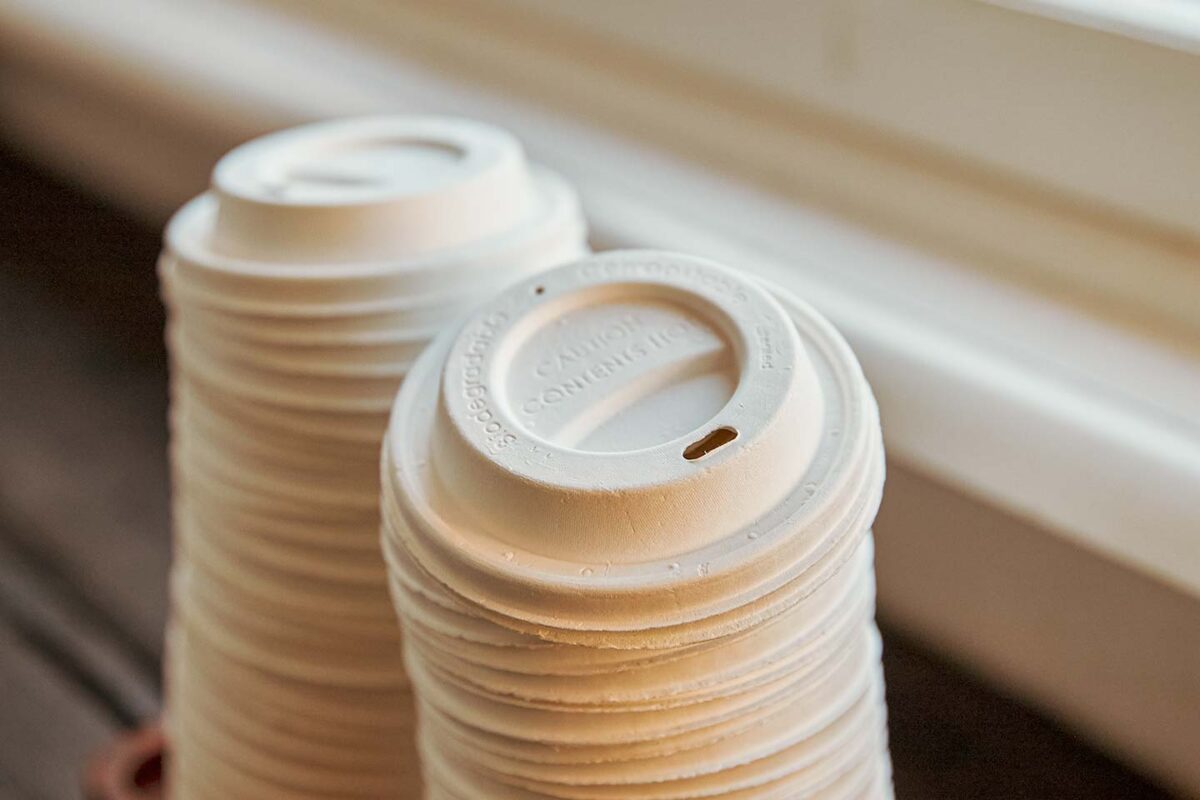
Sharing deep truths in a small world
In 2016, the Netherlands announced an action plan to realize a circular economy by 2050. Amsterdam was the first city to commit to building a circular economy, and is implementing various projects to eliminate waste, including the waste-free DGTL music festival.
But for Amsterdam residents Kaho and Mitchell, the reality is a far cry from the ideology of a country leading the path to a sustainable society.
Kaho: “It’s very different on an individual level. There’s no need to separate trash, and there’s litter on the streets. It’s a great concept, but it’s not being carried out in real life, so there’s a discrepancy there. There’s also a lot of greenwashing – which has always existed because being sustainable is a way to market a business – but there’s not enough action that actually makes a difference.”
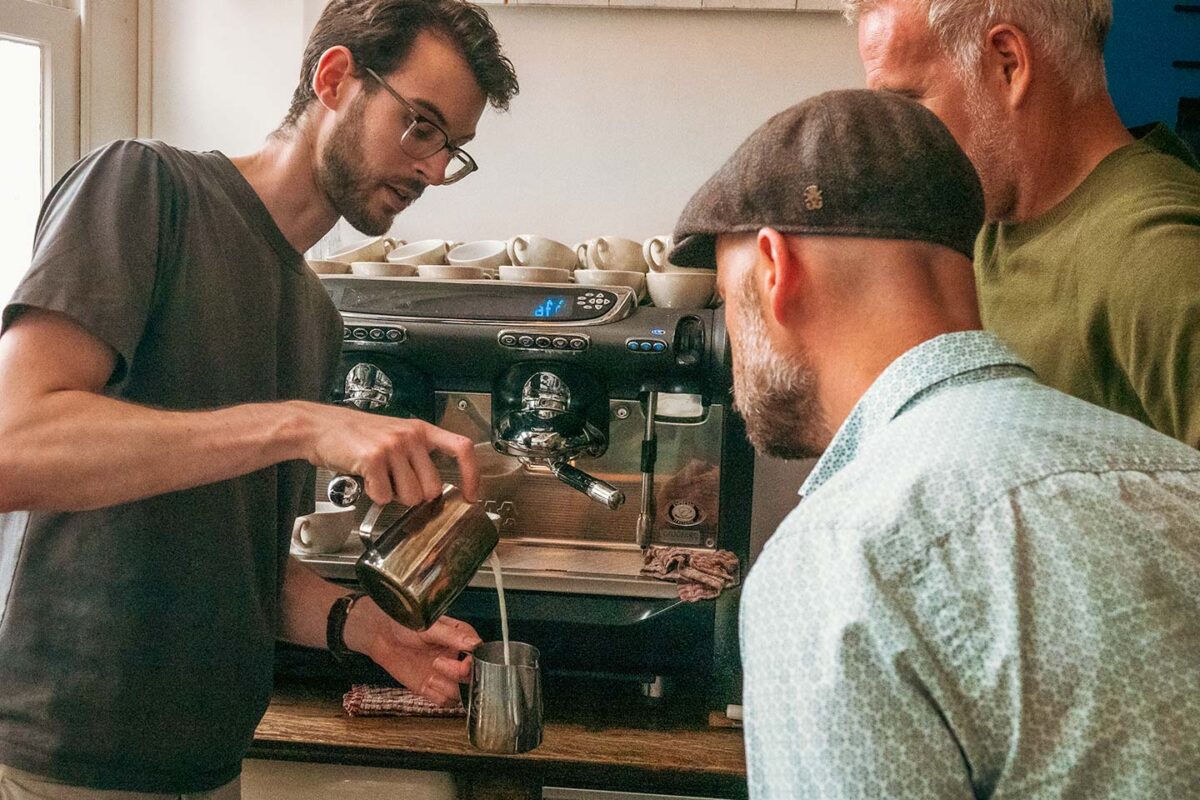
Trying to make a difference is how the weekly workshops at Sango began. The participants come from a wide range of demographics, interests, and ages. Workshops are limited to 8 people per session to allow for more personal time per person. Currently, the workshops are booked up to three months in advance and they are considering adding more.
Mitchell: “Even though the workshops have similar content, and I’m usually saying the same things, every workshop is different. Even if the participants are the same, the session will be different every time. The people are different, from their personality to their taste in coffee or latte art. Everyone has a different reaction and experience.
At the workshops I’m always saying, ‘You don’t have to do it like this. But I will tell you why I do it like this.’ I really hope that people are inspired by what we do. That’s what is really important to us.”
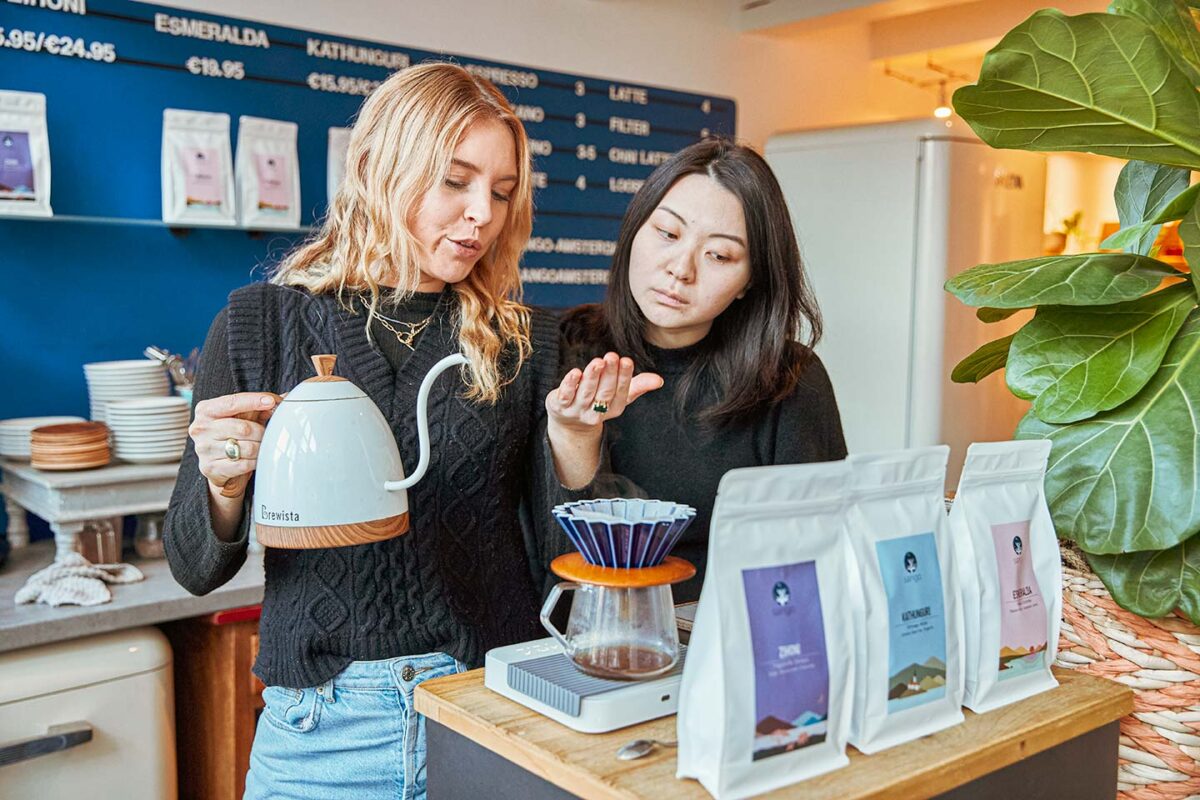
Mitchell and Kaho are only 29 years old, yet their close friends fondly think of them as an old couple. Perhaps it is because they have an inner calm, a quiet confidence in who they are and where they are going, qualities that tend to come with age and experience and are rarely seen in people so young.
Kaho: “A more personal interaction allows you to portray a deeper truth. But it’s not a universal truth. You decide what your truth is. Because the truth, in the end, is subjective. So whether or not you take it, take our word for it, depends on the person.
And that’s why we try to share what we know, and what we have learned, as honestly and truthfully as we can. My parents have a favorite Japanese saying, ‘Chiri mo tsumoreba yama to naru,’ which means that all the little efforts that you make, if you continue to do them, they can pile up to be something great. I like to think that all these little things that we do here are what keep our customers coming back.”
Text: Tatsuya Nakamichi
Photos: Marina Chef、 (*) Evelin Földvári

MY FAVORITE COFFEE
Mitchell: People probably think I drink coffee all day but I usually just have one or two cups. I want to be intentional when drinking. I want to be mindful of everyone's hard work that’s in the cup. I couldn’t stand and drink. It's just not a possibility. That’s why I never let anyone make my coffee. It’s not just the drinking, it’s the ritual behind it.
Kaho: I recently gave birth to our second child and while pregnant, I could only have one cup of coffee a day. So it really mattered that I had a good cup of coffee. It had to count. And the cup of coffee that brought me most joy was the one Mitchell made for me. My pregnancy definitely made me appreciate coffee more.

Buy coffee beans from this roaster
Sango Amsterdam
- [Open]
- Fri-Tue 9:00-16:00